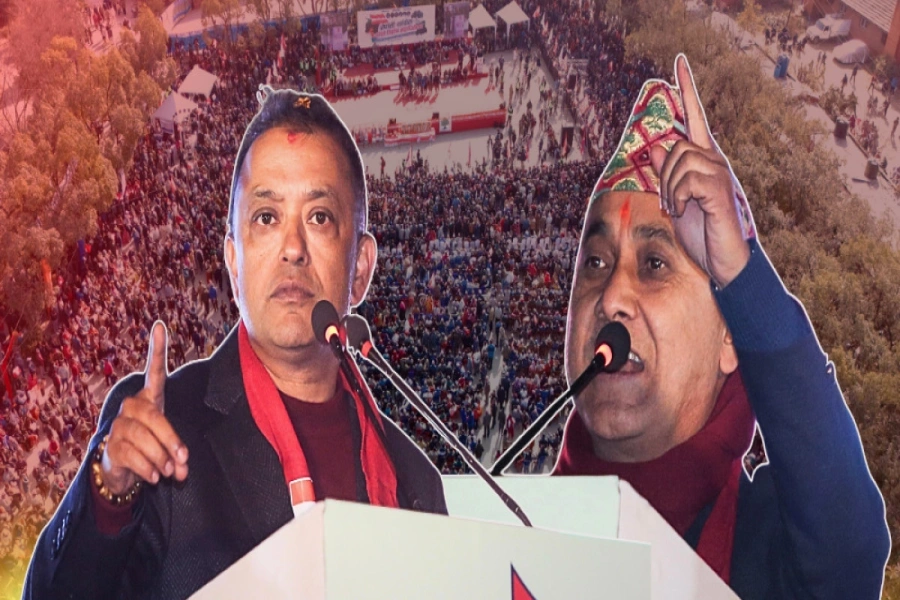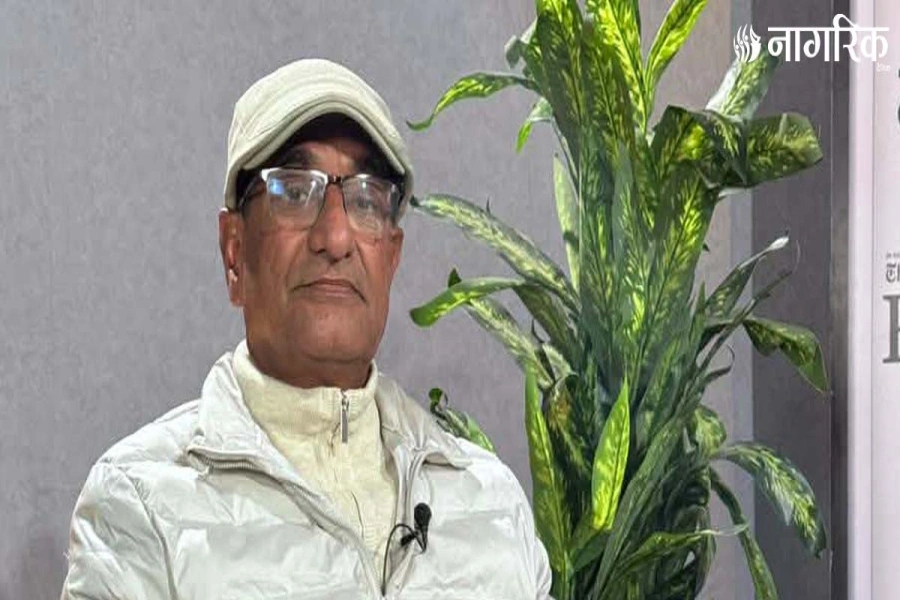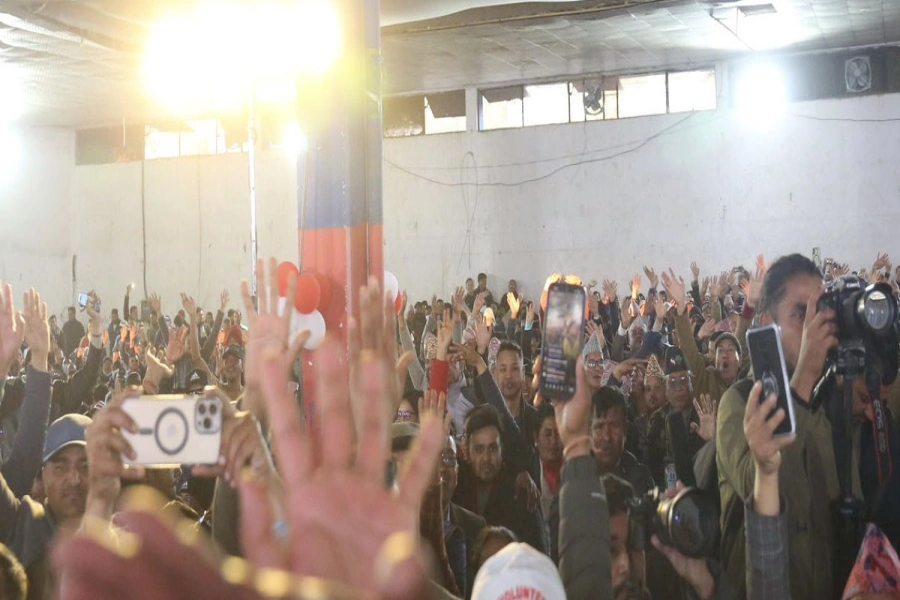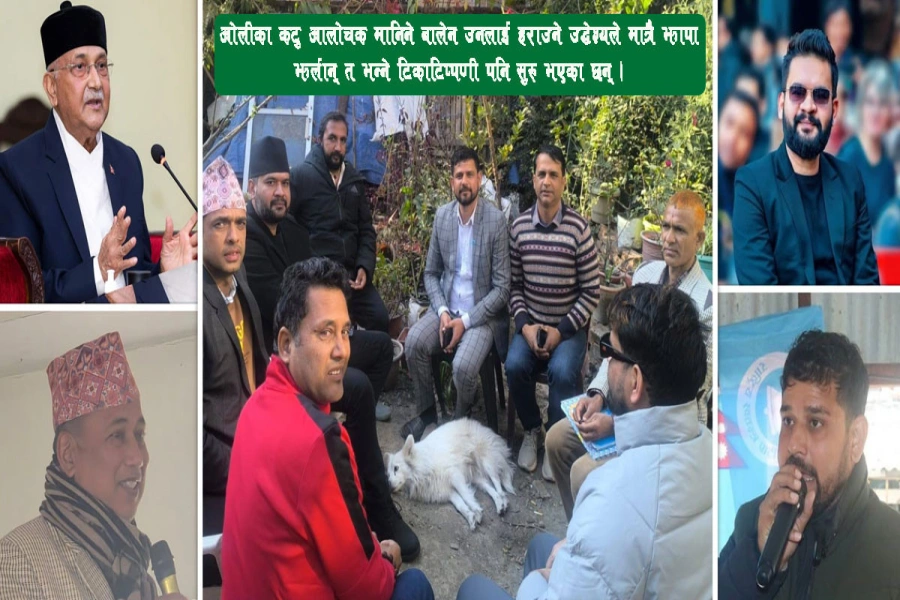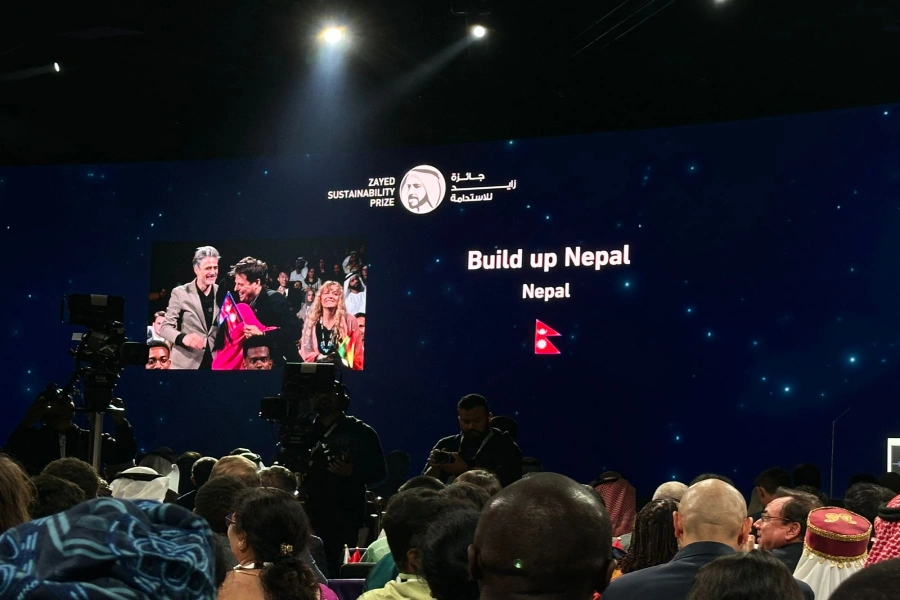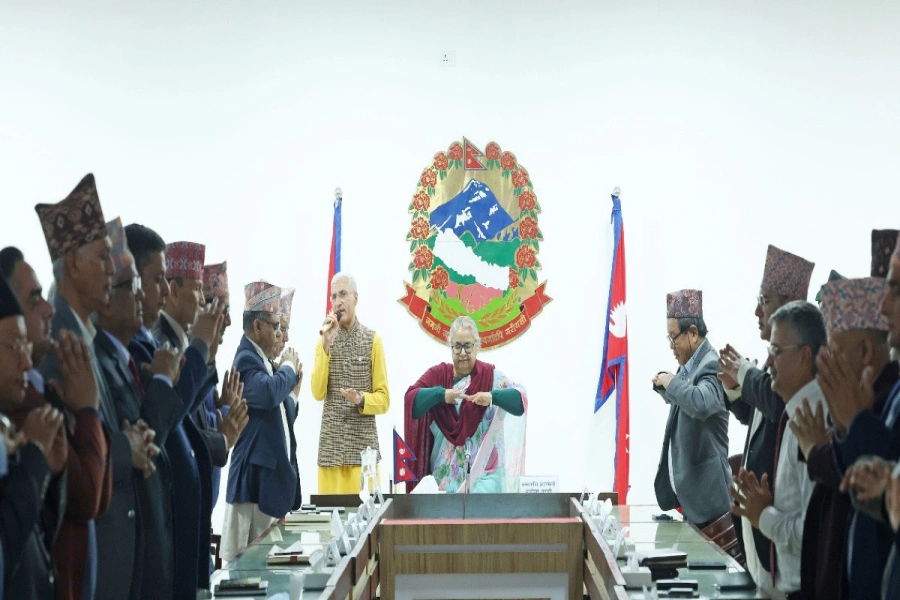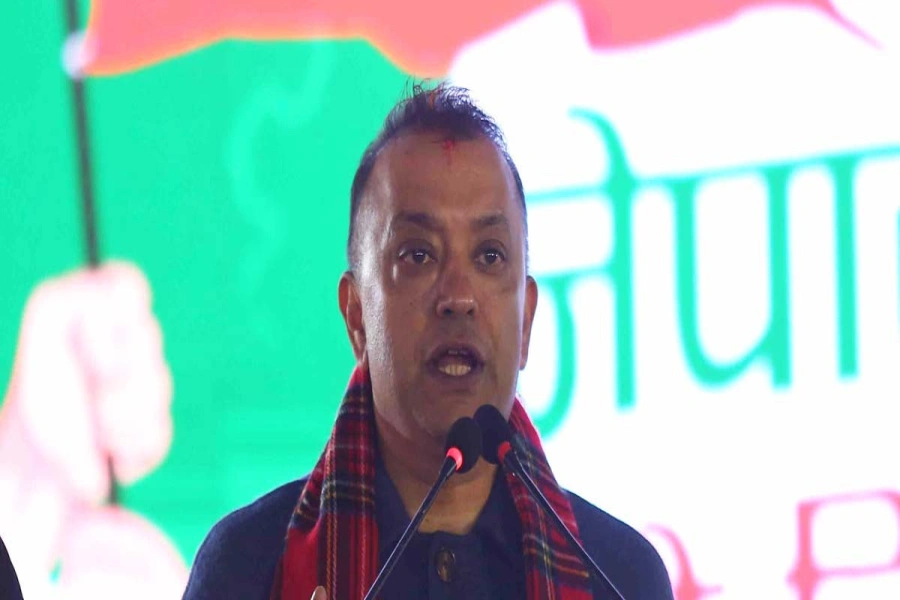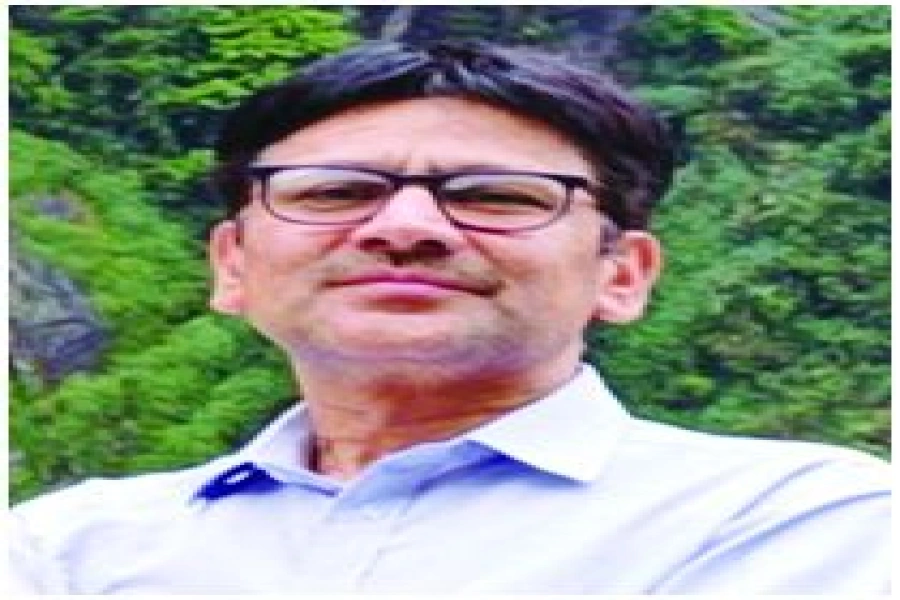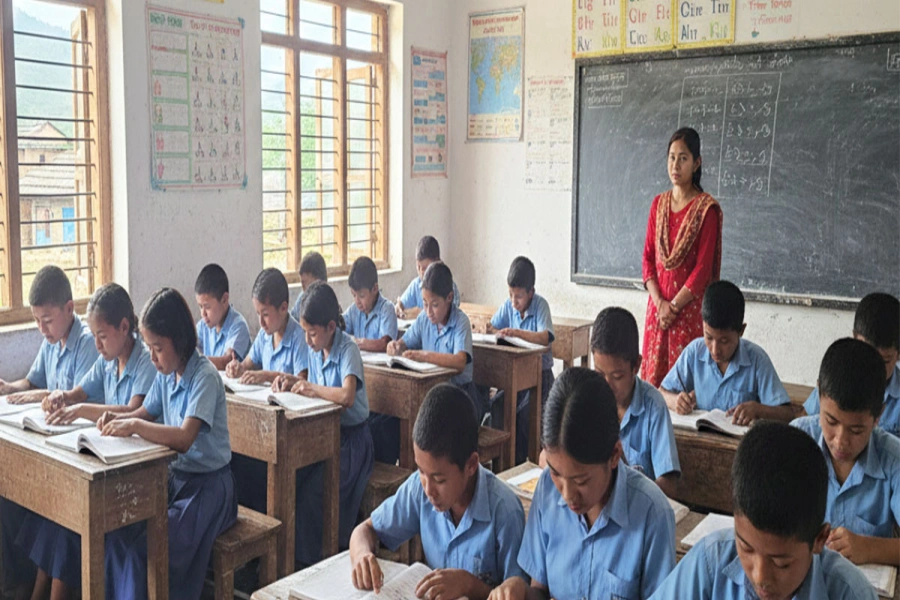If you have seen the recent Nepali advertisements for Coke, you have probably appreciated the fact that Nepali ads are finally moving past cheesy dialogues and are being presented in a more sensible and creative way. We have Fuzz Factory Productions to thank for that. Fuzz Factory is a media production company that covers an array of audio-visual production services.
Established in 2009, Fuzz Factory Productions is the brainchild of Prasiit Sthapit, Rohit John Chettri, and Rohit Shakya. Their first project was a video for Chettri’s art rock band JINDABAAD titled Rewind. JINDABAAD wanted an unorthodox video for their song but no one in Nepal produced the kind of videos they had in mind for Rewind. Chettri consulted his longtime friend Sthapit and together they decided to make good use of the video camera Sthapit had just bought for himself. As quite a few people claimed that they liked this video, Chettri and Sthapit decided to collaborate and work together as Fuzz Factory Productions on future projects. At that time, they were assisted in their projects by a mutual friend, singer Astha Tamang Maskey.
 The name Fuzz Factory came about because Sthapit and Chettri agreed that it would introduce their offbeat production house accurately. ‘Fuzz’ is a distorted sound a guitar makes and they added in ‘factory’ because although they are not the archetypal factory, they are a production house which, according to the duo, is similar to a factory in terms of how it brings about new things. Only a short period after putting out the video for Rewind, they started working with other established artists like Maskey and Kutumba for their music video production. Fuzz Factory started out officially in 2013 when Rohit Shakya, the co-founder of Fuzz Factory Productions and the owner of Nepali bag brand Mheecha, registered the company after he came back to Nepal after completing his studies in the US.
The name Fuzz Factory came about because Sthapit and Chettri agreed that it would introduce their offbeat production house accurately. ‘Fuzz’ is a distorted sound a guitar makes and they added in ‘factory’ because although they are not the archetypal factory, they are a production house which, according to the duo, is similar to a factory in terms of how it brings about new things. Only a short period after putting out the video for Rewind, they started working with other established artists like Maskey and Kutumba for their music video production. Fuzz Factory started out officially in 2013 when Rohit Shakya, the co-founder of Fuzz Factory Productions and the owner of Nepali bag brand Mheecha, registered the company after he came back to Nepal after completing his studies in the US.
Managing museums

Sthapit mentions that today Fuzz Factory Productions works on everything from TV commercial, music video production, audio recording, mixing and mastering, music production, film scoring, event documentation, documentary production, and photography. “As long as it’s a creative project, there’s nothing we don’t take up,” he says adding that Fuzz Factory takes pride in its team that comprises of really creative individuals. Barsha Mukhiya, Himal Thapa, Raywot Shrestha, and Angela Shrestha make up the Fuzz Factory Productions team besides Sthapit, Shakya, and Chettri. Fuzz Factory also collaborates with a lot of freelance artists for their expertise in their respective domains like makeup, lightning, costume, etc.
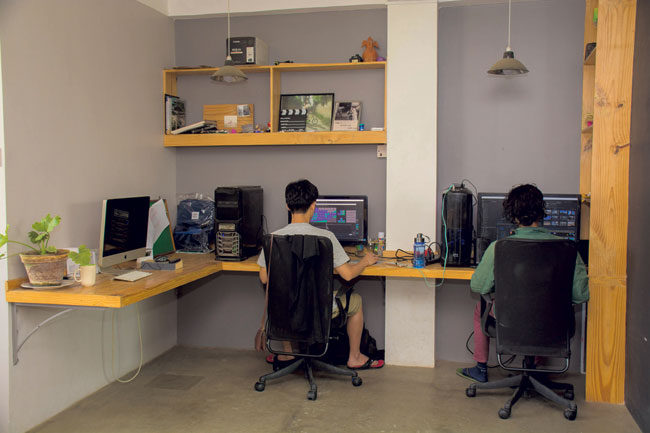 For music videos and TV commercials, the Fuzz Factory team sits down to discuss the concept and theme for the video after they are approached by an organization. They take their time to come up with the concepts and research everything they might need to know about the topic. This is the stage that takes the longest time – it can take anywhere from a week to three months for the whole to team to agree on a detailed concept. Then they move onto creating a storyboard for the project and hire actors and connect with freelance artists for collaboration.
For music videos and TV commercials, the Fuzz Factory team sits down to discuss the concept and theme for the video after they are approached by an organization. They take their time to come up with the concepts and research everything they might need to know about the topic. This is the stage that takes the longest time – it can take anywhere from a week to three months for the whole to team to agree on a detailed concept. Then they move onto creating a storyboard for the project and hire actors and connect with freelance artists for collaboration.
After that is the production phase of the project. Before the actual shooting process starts, the Fuzz Factory team conducts a short workshop with the actors to develop chemistry between the two sides. “This makes working a lot easier for us as well as the actors. This is over pretty quickly, in just two or three days – since the only thing we do is shoot footage for the project. The editing part is a bit tedious because even if it’s a minute long video, we usually have footage of about an hour or two but that’s the last part of it. Then the video is released,” says Sthapit.
Sthapit explains that the pre-production and production process of documentaries is also pretty similar. The only difference while working on documentaries is that they actually start researching on it, and come up with a concept, and film it on the field rather than deciding on it beforehand.
 Since 2016, Fuzz Factory Productions have also been putting out an original series titled FUZZSCAPE where they head out of Kathmandu to another town or village and collaborate with local artists there to create music. They film the whole thing and upload the videos and the behind the scenes on their YouTube channel. This year, they are releasing three videos for the third season of FUZZSCAPE – shot at Bhojpur, Janakpur, and Manang. The first one to be uploaded among them will be the episode shot in Bhojpur – it will be out sometime in late June or early July. Since, this is their independent project, they had actually started facing financial problems to produce it. Fortunately, British Council and Prince Claus Fund have stepped up to sponsor this project starting this year.
Since 2016, Fuzz Factory Productions have also been putting out an original series titled FUZZSCAPE where they head out of Kathmandu to another town or village and collaborate with local artists there to create music. They film the whole thing and upload the videos and the behind the scenes on their YouTube channel. This year, they are releasing three videos for the third season of FUZZSCAPE – shot at Bhojpur, Janakpur, and Manang. The first one to be uploaded among them will be the episode shot in Bhojpur – it will be out sometime in late June or early July. Since, this is their independent project, they had actually started facing financial problems to produce it. Fortunately, British Council and Prince Claus Fund have stepped up to sponsor this project starting this year.
Sthapit mentions that although Fuzz Factory has not created any supposedly viral content, they are still happy with where they are right now. Creating an insubstantial viral project has never been their objective. “We want to create good quality content that
is creative, witty and meaningful and we have been doing just that. Although we are not that widely known, we have this small circle of people who actually appreciate the work we put into our projects. The one thing we want to improve on is uploading more episodes per season of FUZZSCAPE,” he concludes.



